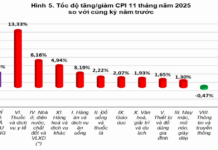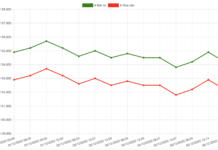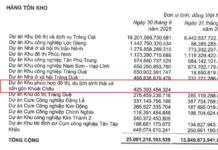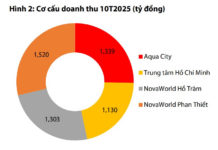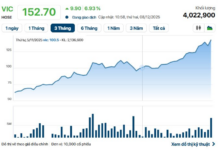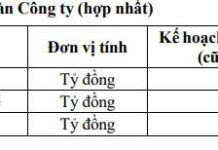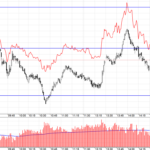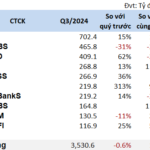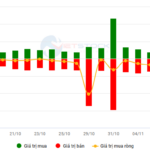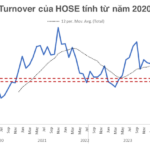On November 5, 2024, Vietnam time, the US presidential election will take place between Democratic Party Vice President Kamala Harris and Republican Party candidate, former President Donald Trump.
Mirae Asset has just released historical statistics from the 20 closest presidential elections from 1944 to 2020, showing the performance of the US stock market after the election, with results varying between the two parties.
Specifically, when a Democrat wins, the stock market tends to show an average increase of 3.8% after 3 months, 8% after 6 months, and 17% after 1 year. On the other hand, when a Republican wins, the market shows a more modest average increase of 0.37% after 10 days, 1.52% after 1 month, and 2.17% after 3 months. However, by the 6-month mark, the average increase is only 1.59%, and after 1 year, it further slows to 0.83%.
Additionally, the S&P 500 has shown a positive trend, with 14 out of 20 instances of gains after 3 and 6 months, and 13 out of 20 instances of gains 1 year after the election. However, there have been 11 out of 20 instances of declines within the first 5 days of trading (T+5) and 10 out of 20 instances of declines within 10 days (T+10).
The stock market tends to need time to adjust to the policies of a new president, and thus, the market will more clearly reflect these policies in the second and third years of the president’s term. This leads to stronger market performance before the election and in the years following it.
In terms of valuation, the current P/E ratio of the S&P 500 is 21.9, higher than the 3-year average of 18.8 and the 5-year average of 19.5. Therefore, after the election, the US stock market may experience a correction or a slowdown in its upward trajectory in the short term, as the market awaits the implementation and effectiveness of new policies, which will be reflected in economic growth data.

Turning to the potential impact on the Vietnamese economy, regardless of which party wins, there will be both positive and negative consequences.
A Trump victory would bring about significant changes and shifts in policies, which could benefit Vietnam in terms of supply chain relocation from China due to high tariffs on Chinese imports. However, it also poses risks related to protectionist policies and stringent trade agreements.
Specifically, a 10-20% increase in tariffs on imports from other countries, with the US being Vietnam’s largest export market, could have a significant impact. In the first 9 months of 2024, Vietnam’s exports to the US reached $88.16 billion, a 25.6% increase, with computers, electronics, components, and textiles being the main drivers.
Additionally, as China is Vietnam’s largest import market, recording $104.81 billion in imports in the same period, a 32.4% increase, there could be adverse effects if the US imposes tariffs on products imported from China that are manufactured in third countries.
If Kamala Harris wins, there won’t be significant policy changes, as she is expected to continue Biden’s policies. She promotes multilateral cooperation and engagement in international trade organizations. If she rejoins the Comprehensive and Progressive Agreement for Trans-Pacific Partnership (CPTPP), it could benefit Vietnam, as it is a member of this bloc, thus boosting export activities.
An important consideration is the US public debt, which has soared from below $20 trillion before the pandemic to nearly $35 trillion. According to the Congressional Budget Office (CBO), this debt could increase from 99% of GDP at the end of 2024 to 116% of GDP by 2034. Both candidates’ policies are likely to contribute to this increase, impacting economic growth. Additionally, the existing inflation risk influences the Fed’s interest rate reduction policy, strengthening the US dollar and weakening other currencies.
Harris’s policies are not expected to significantly affect the Vietnamese economy, but Trump’s policies could create a double impact, both positive and negative. However, the actual implementation and specific consequences may vary.
Regarding the Vietnamese stock market, US presidential elections generally do not have a significant impact. However, historical data show a positive correlation between the S&P 500 and the VN-Index, with a 27% correlation in the last month and 76% in the last quarter. Therefore, the performance of the US stock market is expected to influence the VN-Index in the short term.
“There is a higher probability of a short-term correction in the US stock market after the election, which could lead to a mild impact on the Vietnamese stock market in the near term,” Mirae Asset concluded.
The Stock Market Observer: Bottom Fishers Out in Force
Today’s market showed a significant boost in positivity, not just in terms of the upward index movement but also in the balance and strength of the bottom-fishing money flow. The shift from indiscriminate selling to price-conscious selling and a tug-of-war is a notable change in psychology and risk assessment.
What Are Proprietary Trading Firms Holding in Their Portfolios?
The proprietary trading segment has brought in a substantial profit of over 3.53 thousand billion VND for securities companies, despite a modest increase. What are the secret weapons in the portfolios of these securities firms, and how have they achieved this success? It’s time to delve into the strategies and uncover the key drivers behind these impressive results.
The Savvy Investor’s Bottom-fishing Expedition
The VN-Index pared losses, forming a Hammer candlestick pattern with above-average volume. This indicates a temporary reprieve from market risk as bottom-fishing funds entered the market, spurring a surge in trading volume. The Stochastic Oscillator, having exited oversold territory, continues to signal a buy. If this signal holds firm in the coming sessions, the short-term outlook may not be as pessimistic.
Unraveling Trump’s Triumph, Elon Musk’s Billion-Dollar Turnaround, and the Silent Majority: Insights from Professor Ha Ton Vinh
“In a stunning victory, Donald Trump clinched the presidency in the 2024 US elections, winning in 4 out of 7 battleground states. This triumph propelled him to become the 47th President of the United States, marking an unprecedented milestone in the world’s largest economy after 132 years. From the US, Professor Ha Ton Vinh shared with us his insights on the ‘interesting yet simple’ reasons behind Donald Trump’s win.”
“The Shadow of Gloom and Doubt on the Stock Market”
The liquidity turnover on HOSE indicates that the doldrums of early 2023 are back. While the flow of funds remains stagnant, there are opportunities to be found in the market.








